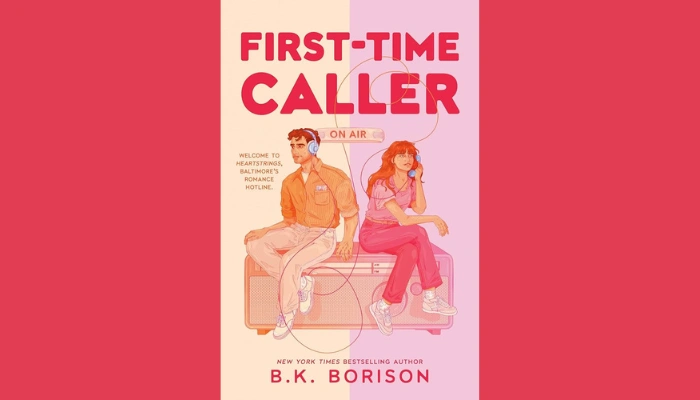Making a call for the first time—whether it’s to a new friend, a customer support line, or even a potential business contact—can feel surprisingly daunting. Many people underestimate the nerves and uncertainty that come with being a first time caller, but it’s an experience most of us share at some point in life.
I remember the first time I had to call a publishing house to inquire about a book review opportunity. My hands were slightly sweaty, and my heart was racing, but that call ended up opening doors I hadn’t even imagined. That experience taught me the importance of preparation, tone, and confidence—a lesson that applies to anyone navigating their first time call experience.
In this article, we’ll explore what it means to be a first time caller, why it matters, and how you can make every first call count. Along the way, I’ll share tips, real-life experiences, and a case study that will help readers feel confident and prepared.

Content
Understanding the Term “First Time Caller”
At its core, a first time caller is simply someone making a call to a specific person, organization, or service for the very first time. It could be in the context of:
- Customer service: Calling a help line or support team for assistance.
- Professional networking: Reaching out to a new client, mentor, or colleague.
- Personal connections: Calling a friend, family member, or acquaintance you haven’t spoken to before.
For many, the anxiety comes from not knowing what to say, how to sound confident, or how the other person will respond. That’s why understanding the etiquette and having a clear plan is crucial.
Common Experiences and Challenges for First Time Callers
Being a first time phone caller comes with its unique set of challenges. Here are a few common ones:
- Fear of making mistakes: Many worry about mispronouncing names, forgetting points, or sounding awkward.
- Uncertainty about tone: Should you sound formal, friendly, or professional?
- Overthinking pauses: Silence can feel longer than it really is, making the caller even more nervous.
- Handling unexpected responses: Not knowing how to respond to questions or redirection from the person on the other end.
These challenges are completely normal, and even experienced professionals face them occasionally. The key is preparation and practice.
Tips for Making a Successful First Call
Here’s a set of actionable tips for anyone stepping into their first time caller experience:
- Plan Ahead: Write down the purpose of your call and key points you want to discuss.
- Practice Your Introduction: A clear, confident opening like “Hi, my name is [Your Name], and I’m calling regarding…” sets the tone for the conversation.
- Use a Friendly Tone: Even in professional calls, warmth and clarity make a great impression.
- Listen Actively: Don’t just focus on what you want to say. Respond to cues and questions.
- Take Notes: It helps you remember important points and shows the caller that you are engaged.
- Follow Up: A short email or message thanking them for their time reinforces a positive first impression.
Remember, each call is a learning opportunity. The more you practice, the easier it becomes.
Read More About: All The Colors of the Dark About
Real-Life Case Study: A First-Time Caller Success Story
Let me share a personal experience from my early days as a book blogger. I was invited to call a publishing house about a new romance book release. Being a first time caller, I was nervous, unsure if I’d be taken seriously.
Here’s what I did:
- I researched the book thoroughly, including author interviews and previous releases.
- I prepared a short script highlighting my blog’s reach and audience engagement.
- I called at the right time and started with a friendly introduction.
The result? Not only did the editor appreciate my preparedness, but they also offered me an exclusive ARC (Advanced Reader Copy) before the official release. This first-time call eventually led to a series of successful collaborations and book reviews.
This case study shows that preparation, clarity, and confidence can transform even a simple first call into a meaningful opportunity.
Common Mistakes First-Time Callers Make
Even with preparation, some mistakes can easily undermine your efforts. Here’s what to avoid:
- Overloading with information: Too many details at once can confuse the listener.
- Speaking too fast: Nervousness often leads to rushing. Slow down and articulate clearly.
- Failing to listen: Conversations are two-way; don’t dominate the call.
- Skipping follow-up: Always send a brief follow-up to reinforce your connection.
By being mindful of these pitfalls, first-time callers can ensure their calls leave a positive impression.
Conclusion: Making Every First Call Count
Being a first time caller doesn’t have to be stressful. With preparation, confidence, and a friendly tone, your first calls can open doors to exciting opportunities—whether in personal life, professional networking, or customer interactions.
Remember, everyone starts somewhere, and every expert was once a first-time caller. Use the tips shared here, learn from each experience, and soon, making first calls will feel natural and empowering.
Have you had a memorable first-time call experience? Share your story in the comments below—we’d love to hear how your first calls shaped your personal or professional journey.
For more engaging book reviews, check out our thoughts on Four Weekends And A Funeral.
FAQs
Is the First-Time Caller book spicy?
First-Time Caller has mild romance elements but isn’t overly spicy, suitable for most readers.
What age is the First-Time Caller for?
First-Time Caller is recommended for readers 16+ due to romantic themes.
What does “first time caller” mean?
“First time caller” refers to someone making a call for the very first time, in any context.
Can first-time callers feel confident?
Yes, with preparation, clear points, and a friendly tone, first-time callers can feel confident and make a great impression.

Meet Jessica, our bookworm extraordinaire! She’s an avid reader with a penchant for mysteries and a soft spot for fantasy worlds. Join her in exploring the pages of literary treasures.












